6. Scenes From A Marriage
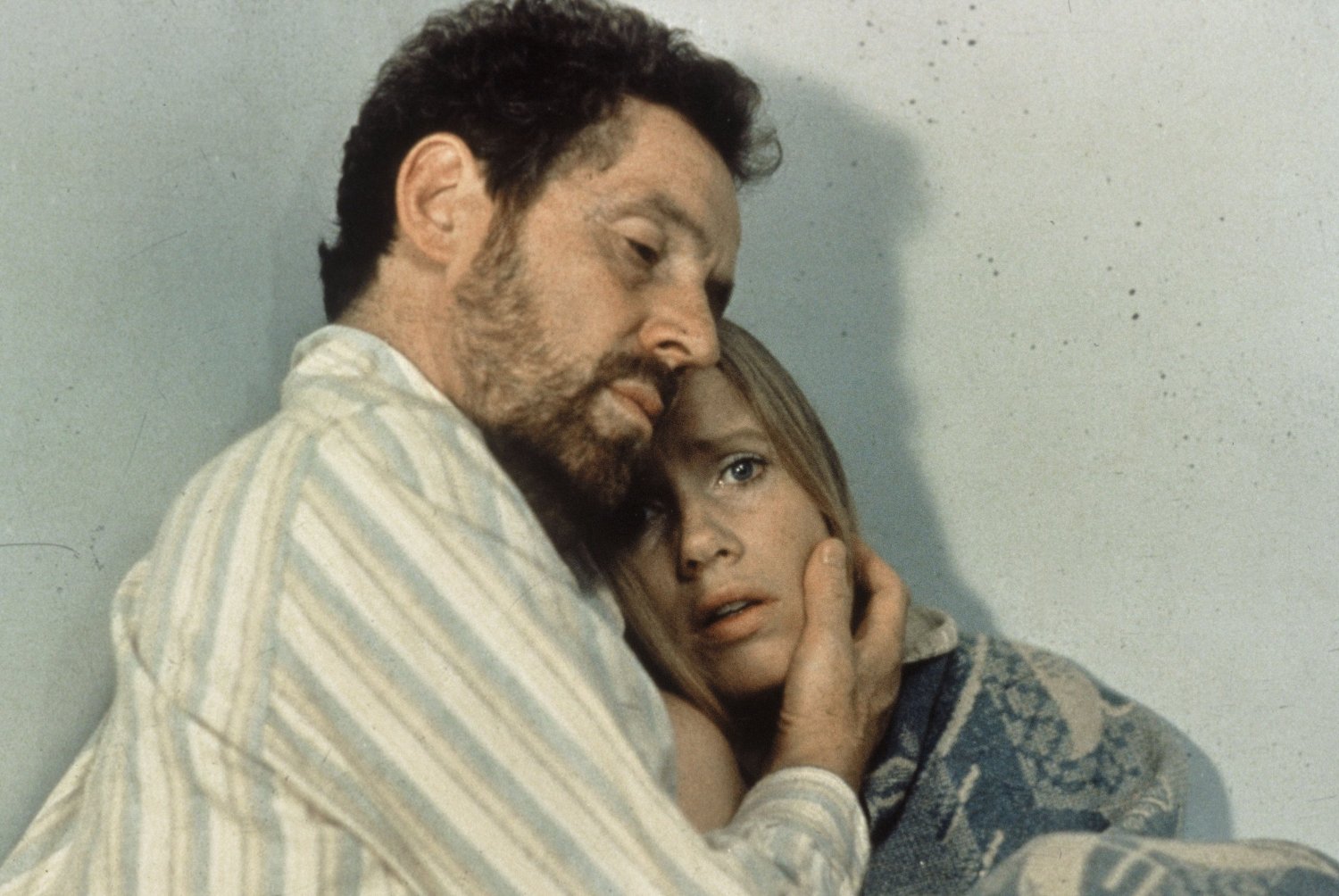
Scenes From A Marriage is literally what the title says it is: a series of scenes from a marriage. The marriage of Marianne and Johan, to be exact. Marianne is a divorce lawyer and Johan is a professor. Ranked amongst Ingmar Bergman’s best work, Scenes From A Marriage was initially released for Swedish television. However, like Rainer Werner Fassbinder’s Berlin Alexanderplatz, Krzysztof Kieślowski’s Dekalog and David Lynch’s new Twin Peaks, it’s commonly considered a long format film.
We witness the highs and lows of Marianne and Johan’s love at the beginning, and any moment they could turn on each other, and divorce may follow suit. In fact, it does. As a viewer, you become desperate for them. When the husband announces his love for another woman, Marianne’s reaction is one of acceptance.
Interestingly, their marriage ends early on in the film, yet the title infers that the latter parts with the characters reaching middle-age, meeting and reconciling, are still part of their marriage. Perhaps that’s Bergman’s spiritual view. Once you love someone, they will always be a part of you and your marriage is eternal. Twenty years after they met, Marianne and Johan are able to come together again, despite the trauma of the past, emotions, egos and the selfishness.
7. La Notte
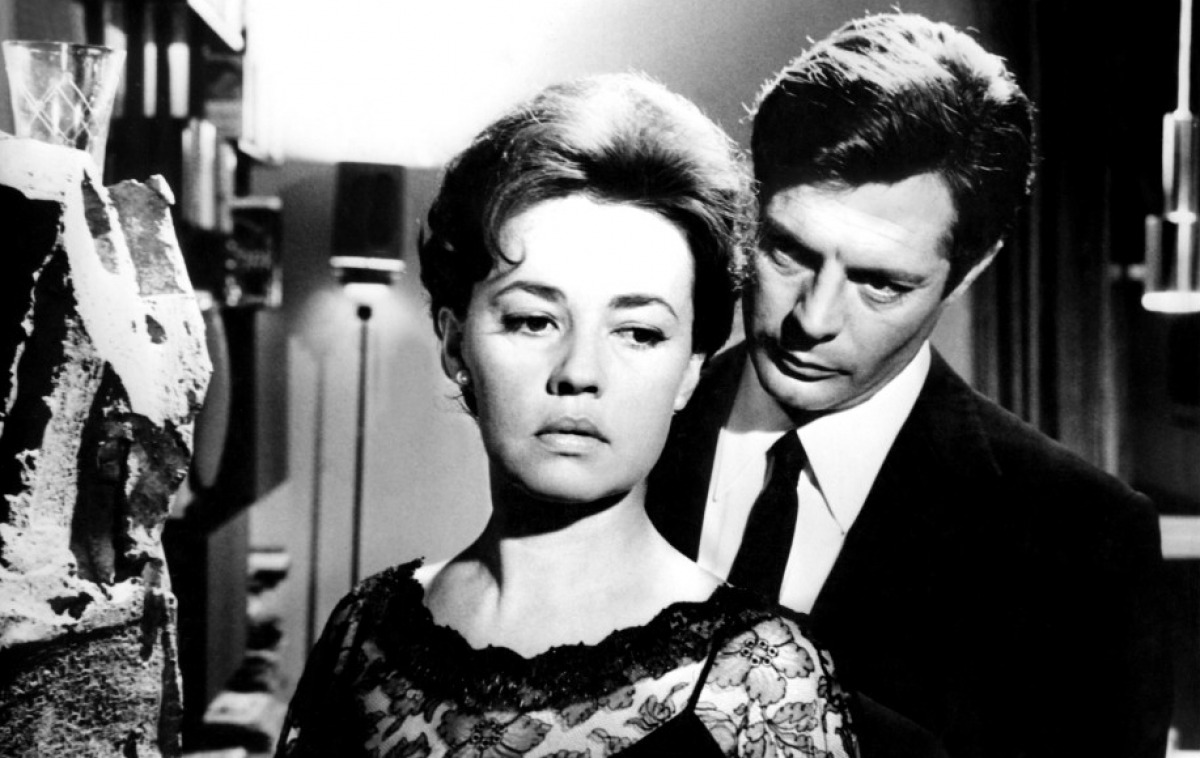
After the formidable success of L’avventura, Michelangelo Antonioni continued his winning streak with this story of desire. Like Eyes Wide Shut, La Notte (literally meaning ‘the night’) is set over the course of a night and follows Giovanni and Lidia (Marcello Mastroianni and Jeanne Moreau at the height of their powers), a writer and his wife, as the husband deals with temptations that may lead to unfaithfulness.
Ravishingly styled in stark black-and-white and framed for maximum emotional impact, the mood is what carries the film through. Slow-paced and deliberate, Antonioni immerses us in what can only be described as an elusive journey into the thoughts of infidelity and sexual frustration.
8. Force Majeure
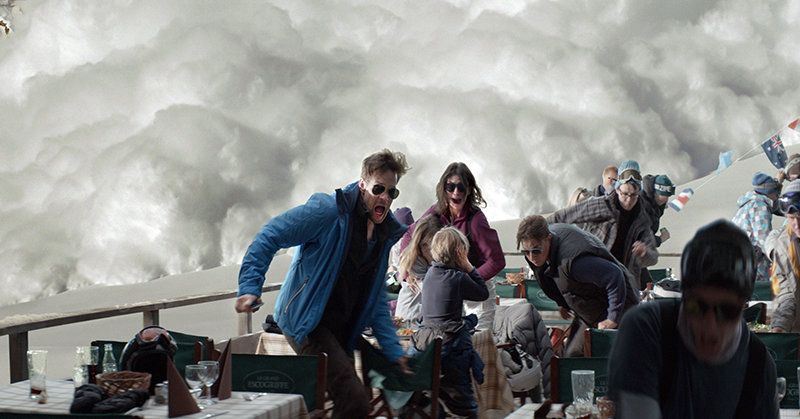
Swedish provocateur Ruben Ostlund is at his best when he slyly shines a light on human behaviour. Many scenes from his films are drawn from viral videos. Ostlund’s Force Majeure, winner of the 2014 Un Certain Regard Prize at Cannes, is about gender roles in marriage, a little like Gone Girl (but without the crime mystery).
Ostlund deconstructs the nuclear family. Tomas and Ebba and their two kids are on vacation in the French Alps, and when Tomas runs away to protect himself rather than his family during an avalanche, marital tension ensues.
The long, static shots make the film uncomfortable and darkly humorous to watch as Ebba questions all she’s ever thought about her husband and Tomas frantically and unsuccessfully defends himself and tries to prove his masculinity. The calm detachment Ostlund films with makes the characters feel like ants trapped under the microscope of the camera lens. The entire ordeal is very well controlled, and is a highlight in Ostlund’s filmography.
9. In the Mood for Love
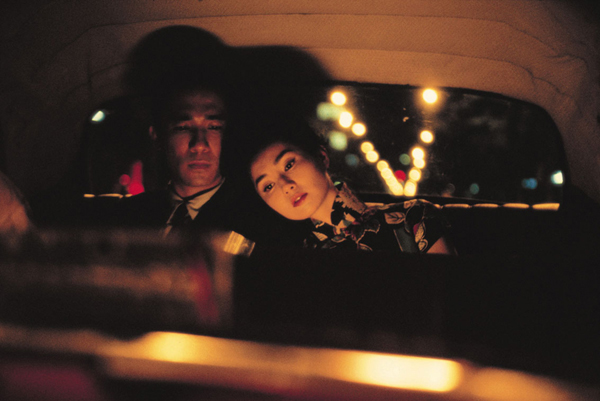
In Wong Kar-wai’s career, he has come back to the themes of lost love, passage of time and the longing for human connection. In the Mood for Love touches on all of these themes, and does so with a confident, restrained touch. It is often hailed as his greatest work, and voted as the 2nd best film of the 21st century in a BBC poll, ranked under only David Lynch’s Mulholland Drive.
Tony Leung and Maggie Cheung star as a man and a woman who suspect that their respective partners are cheating on them with each other. Leung and Cheung’s characters also begin to develop romantic feelings for each other, but agree not to do anything so they won’t be as bad as their partners.
The film is about a connection between two individuals that cannot evolve into a relationship because it occurred at a wrong time in a wrong place. They’re in the mood for love, but cannot act on that love. Marriage acts as a barrier for them, a binding contract that can’t be morally broken, even if their spouses have broken it already. In the end, all that could be done for Tony Leung’s Mr. Chow is to climb up a mountain and whisper his secret into a hole.
10. Amour
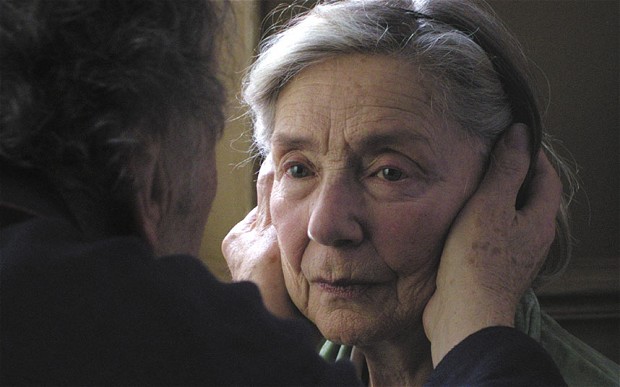
Amour may be the most powerful film Michael Haneke has made so far, and that’s saying something coming from the filmmaker who gave us Funny Games, The Piano Teacher, Caché and The White Ribbon. It’s different from the other entries in this list because it makes us desperate about marriage not because the negative aspects of marriage are highlighted, but because it shows the eternal bond of love being tested in the life of an old couple.
Haneke’s signature sterility is still on display, but he is much more compassionate towards his human subjects than before. Jean-Louis Trintignant and Emmenuelle Riva play Georges and Anne. Isabelle Huppert pops in as their daughter Eva. Anne has a stroke, and the couple are insistent on not seeking medical treatment, instead relying on Georges’ love and care towards his wife. The devastating part of Amour is seeing that even when a couple can remain married for decades, in the end it’s all worth for nothing as they face the horrors of old age and ultimately, death. It’s a painful watch, but a must watch.
Author Bio: Kevin Ding is a young film student in Brisbane who has had experience with writing, cinematography and directing of short films. He has an interest in film criticism, and aspires one day to work in the film industry professionally.